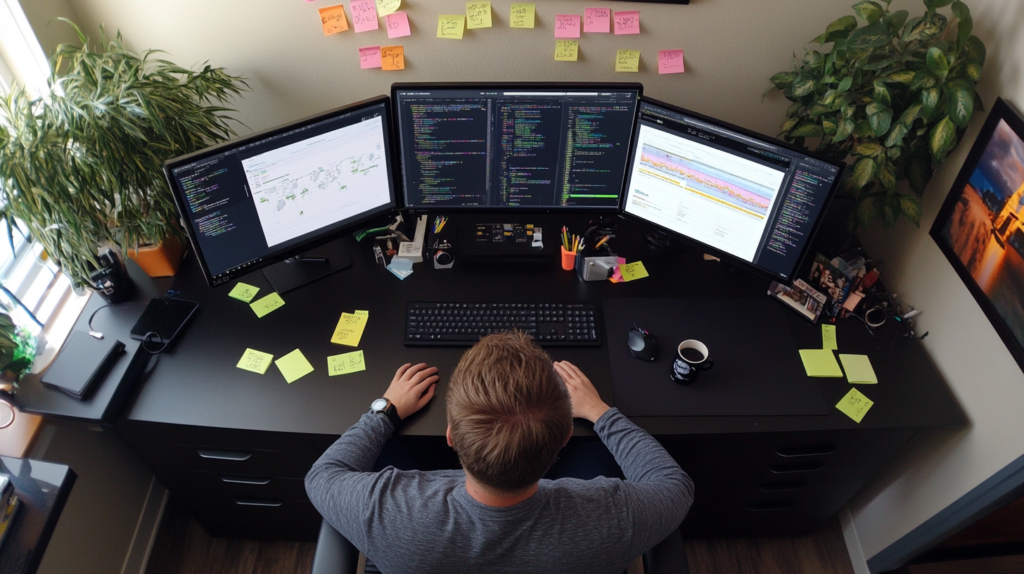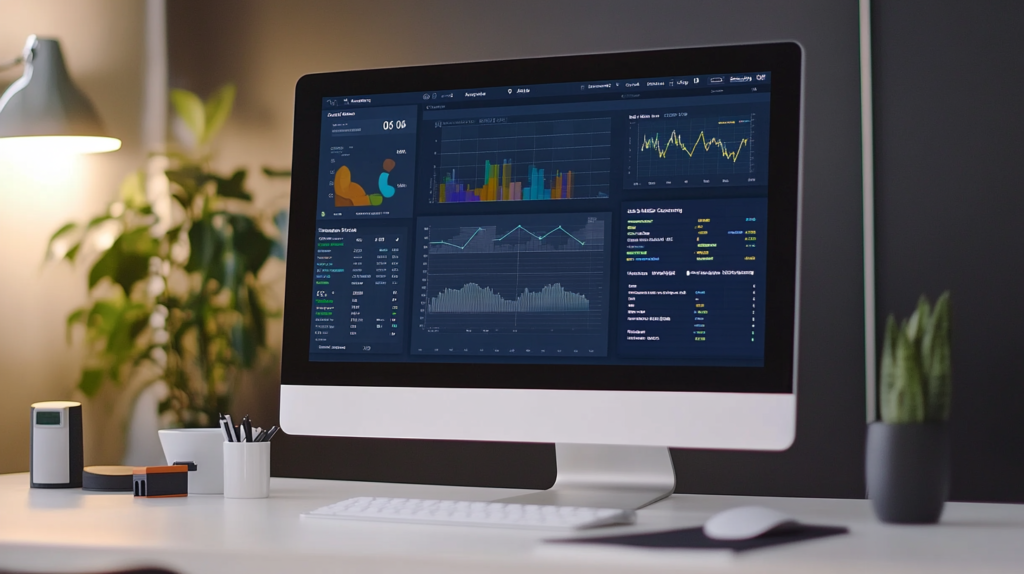Master Managing Multiple Projects Simultaneously Like a Pro

Managing multiple projects simultaneously is a common challenge for professionals across industries. It requires skillful coordination, strategic planning, and the ability to adapt to ever-changing priorities. By mastering this skill, you can significantly enhance your productivity and ensure successful outcomes for every project in your portfolio.
Table of Contents
- Effective Planning for Multiple Projects
- Prioritization Techniques to Manage Workload
- Resource Allocation Strategies
- Time Management for Multiple Deadlines
- Tracking and Monitoring Progress
- Leveraging Collaboration and Communication Tools
- Delegation Strategies for Better Capacity Planning
- How Deskcove Simplifies Project Management
Effective Planning for Multiple Projects
Planning is the foundation of managing multiple projects successfully. Without a clear roadmap, projects can quickly veer off track, resulting in missed deadlines and resource conflicts.
Define Clear Objectives
Start by outlining the objectives for each project. Having a clear understanding of the goals ensures that every task aligns with the overall purpose, reducing confusion and wasted effort.
Create a Master Schedule
Compile all project timelines into a single, comprehensive schedule. This approach helps identify overlapping deadlines and resource constraints, allowing you to adjust as needed.
Identify Milestones
Break each project into smaller milestones. Milestones provide measurable checkpoints, making it easier to track progress and celebrate achievements along the way.
Prioritization Techniques to Manage Workload
When juggling multiple projects, knowing which tasks to focus on first is essential for staying organized and efficient.
Use the Eisenhower Matrix
Categorize tasks based on their urgency and importance. This method helps you allocate time to high-priority tasks while delegating or scheduling less critical activities.
Rank Tasks by Impact
Evaluate tasks based on their potential impact on the project’s success. Prioritizing high-impact tasks ensures that critical elements are addressed first.
Leverage Task Management Tools
Digital tools like Deskcove can help streamline task prioritization by offering features such as automated reminders, tagging, and priority markers.
Resource Allocation Strategies
Efficient resource allocation ensures that projects have the support they need without overburdening your team.
Conduct a Resource Audit
Identify available resources, including personnel, budget, and tools. Understanding your assets helps allocate them effectively across projects.
Balance Team Workloads
Distribute tasks evenly among team members to prevent burnout and maintain productivity. Use capacity planning tools to visualize workloads and adjust assignments.
Plan for Contingencies
Reserve a portion of your resources for unexpected challenges. Contingency planning ensures that projects stay on track even when issues arise.
Time Management for Multiple Deadlines
Time is a finite resource, and managing it wisely is critical when handling several projects simultaneously.
Adopt Time Blocking
Dedicate specific time slots to individual projects. This technique minimizes context-switching and allows you to focus deeply on each task.
Set Realistic Deadlines
Work with stakeholders to establish deadlines that are achievable. Unrealistic timeframes can lead to stress and subpar results.
Utilize Productivity Hacks
Incorporate methods like the Pomodoro Technique or “eat the frog” strategy to maximize efficiency and tackle challenging tasks first.
Tracking and Monitoring Progress
Consistent tracking ensures that projects stay aligned with their goals and timelines.
Use Reporting Dashboards
Leverage tools that offer visual dashboards to monitor progress. These dashboards provide a quick overview of key metrics and milestones.
Schedule Regular Check-Ins
Hold weekly or bi-weekly meetings to discuss project updates, address roadblocks, and realign priorities as needed.
Document Lessons Learned
Track challenges and successes throughout the project lifecycle. This documentation helps improve processes for future projects.
Leveraging Collaboration and Communication Tools
Collaboration tools play a crucial role in managing cross-functional teams and keeping everyone aligned.
Choose the Right Platform
Select tools that suit your team’s needs, such as Deskcove, which integrates task management, communication, and file sharing in one interface.
Maintain Transparent Communication
Ensure that all team members have access to project updates. Transparency reduces miscommunication and fosters trust.
Encourage Cross-Functional Collaboration
Facilitate collaboration between different departments to ensure that projects benefit from diverse perspectives and expertise.
Delegation Strategies for Better Capacity Planning
Delegation is a powerful tool for distributing workload and focusing on high-priority tasks.
Identify Delegation Opportunities
Determine which tasks can be delegated based on their complexity and the expertise required. Delegating effectively frees up time for strategic planning.
Empower Your Team
Provide clear instructions and necessary resources to team members. Empowering them builds confidence and ensures task completion.
Monitor Delegated Tasks
Track the progress of delegated tasks through regular updates. Monitoring ensures accountability and allows for timely interventions if needed.
How Deskcove Simplifies Project Management
Deskcove is an all-in-one project management tool designed to help teams excel in managing multiple projects simultaneously. With features like task prioritization, real-time collaboration, and intuitive reporting dashboards, Deskcove streamlines the entire project lifecycle. Its user-friendly interface and robust capabilities make it an essential tool for professionals looking to enhance efficiency and deliver exceptional results.
FAQ
What are the key challenges of managing multiple projects simultaneously?
Common challenges include conflicting deadlines, resource constraints, and maintaining effective communication among stakeholders.
How can I improve my multitasking skills for project management?
Focus on prioritization, use time-blocking techniques, and leverage tools like Deskcove to stay organized and efficient.
What tools are best for managing multiple projects?
Tools like Deskcove offer comprehensive features, including task management, collaboration, and reporting, to simplify project management workflows.


